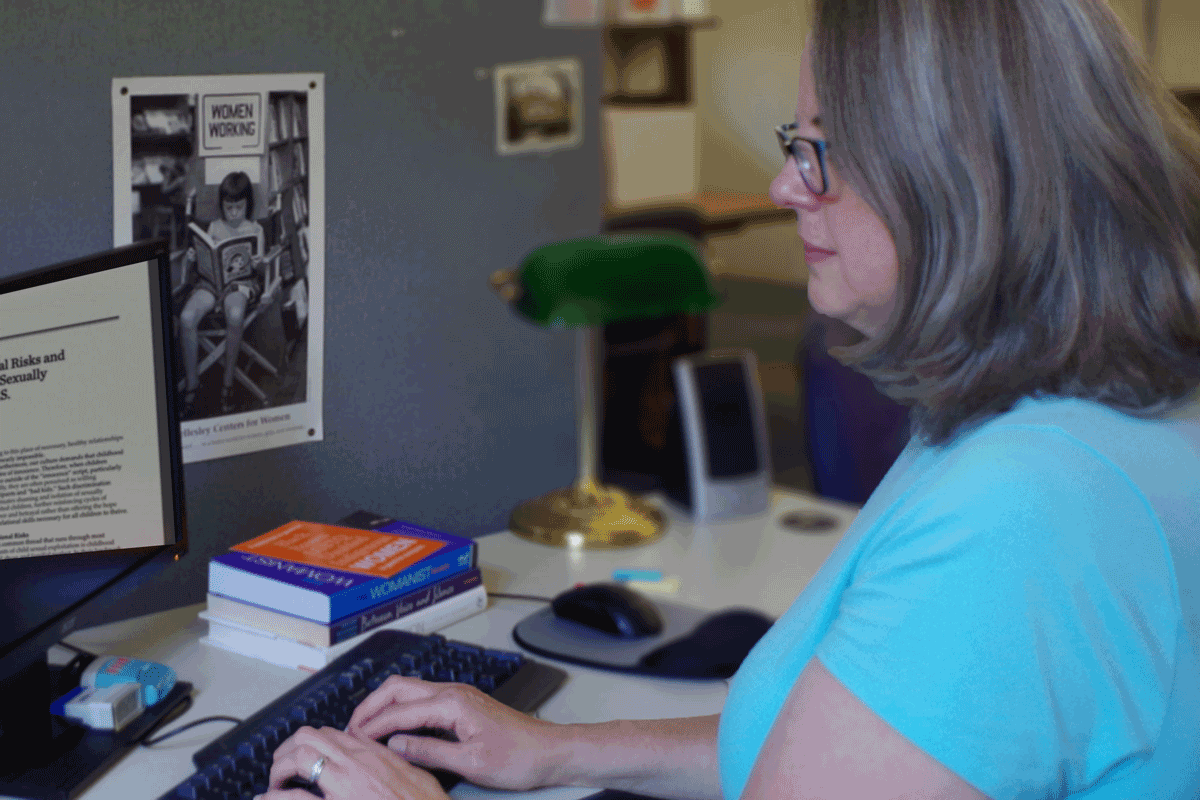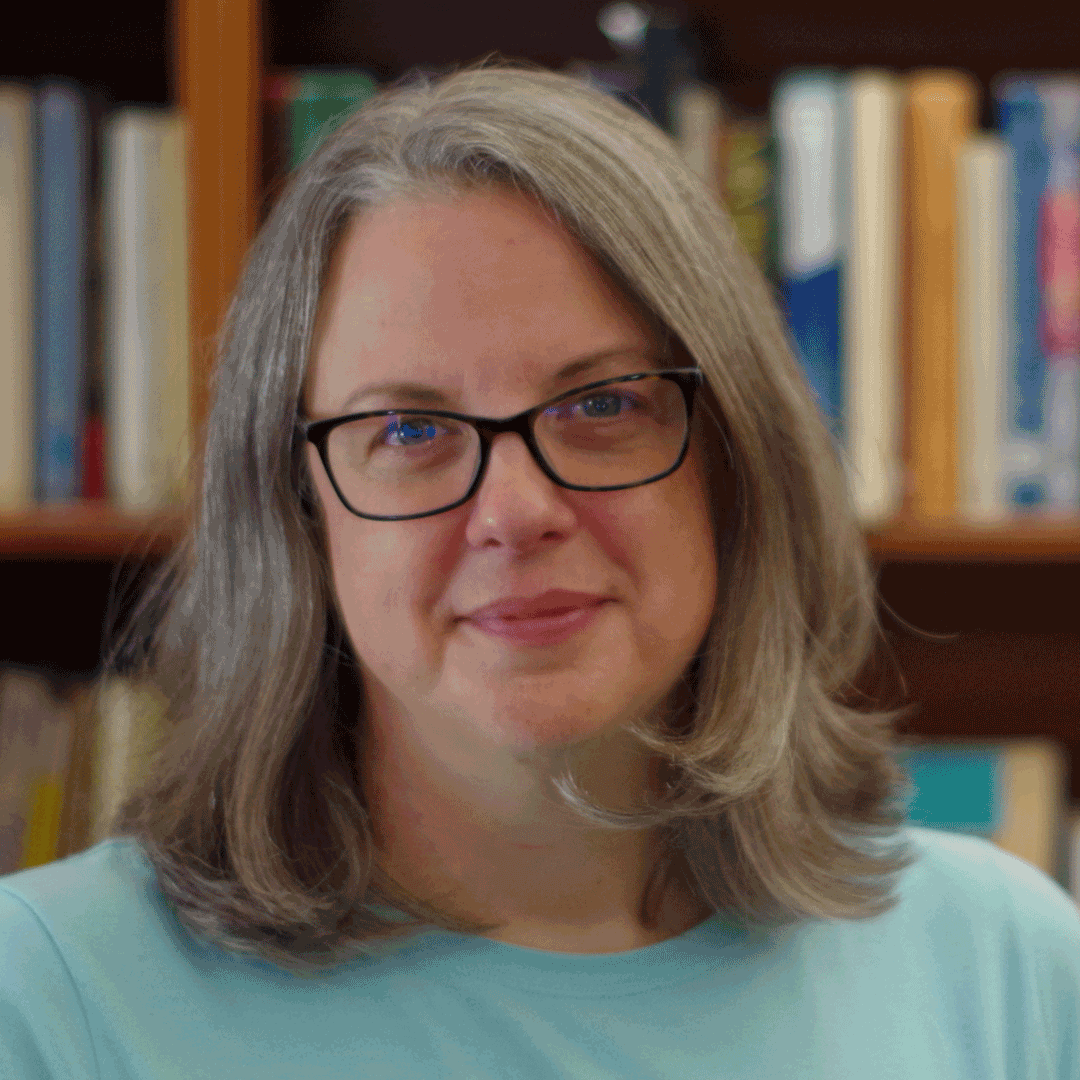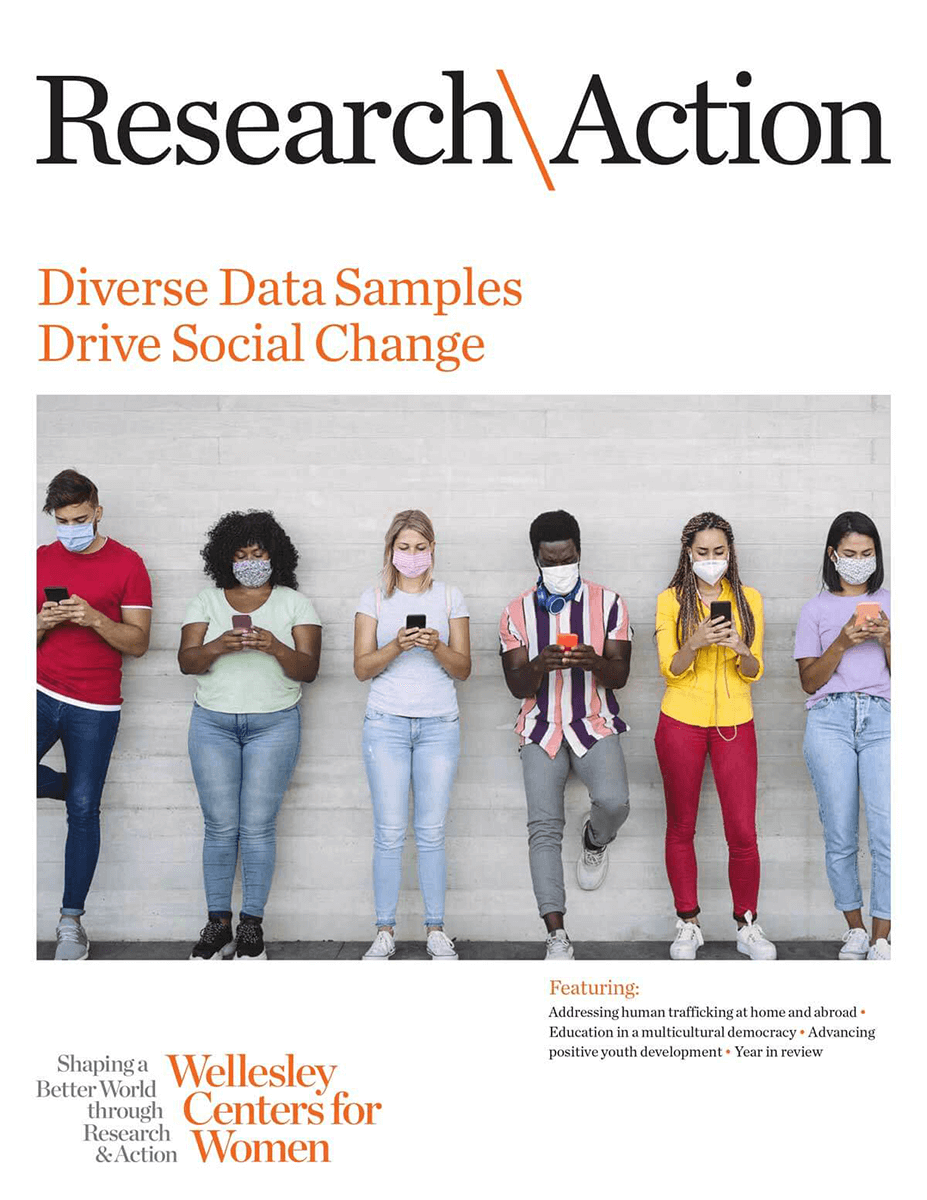 Kate Price, Ph.D., joined WCW as a visiting scholar in the summer of 2021. Over the next year, she will be completing a writing project on the commercial sexual exploitation of children in Appalachia.
Kate Price, Ph.D., joined WCW as a visiting scholar in the summer of 2021. Over the next year, she will be completing a writing project on the commercial sexual exploitation of children in Appalachia.
You're no stranger to WCW! What is your history with the Centers?
I was a project associate for the Jean Baker Miller Training Institute, an action project of WCW at the time, before earning my doctorate in 2019. During that time, I focused on applying Relational-Cultural Theory to my ongoing work on the commercial sexual exploitation of children (CSEC). I published the WCW working paper, “Longing to Belong: Relational Risks and Resilience of Commercially Sexually Exploited Children in the U.S.” Shortly thereafter, anti-CSEC advocates utilized this research to successfully prevent the Florida State Legislature from passing a provision that would have involuntarily detained CSEC victims while they were receiving mental and physical health services.
What have you been up to since you left, and why did you decide to return?
I earned my doctorate in sociology at the University of Massachusetts Boston. I wrote my dissertation on state legislative decisions to prohibit the arrest and prosecution of sexually exploited children for prostitution. In addition to continuing my human trafficking research, I am a part of the National Center for Missing and Exploited Children Child Sex Trafficking Advisory Council. I wanted to return because WCW is my “academic home.” Executive Director Layli Maparyan, Ph.D., and Senior Scholar Jean Kilbourne, Ed.D., both pushed me “out of the nest” to get my Ph.D. sooner than I thought I was ready (and I’m so glad they did!). Senior Research Scientist Linda Williams, Ph.D., has also been a mentor and was my external dissertation committee member. I am honored to be a part of this robust community of thought leaders dedicated to gender-based, intersectional scholarship.
My project is investigating and publishing my history of being a survivor of family-controlled commercial sexual exploitation, particularly child sex trafficking and child sexual abuse imagery.
Tell us about the project you'll be working on during your time as a visiting scholar.
My project is investigating and publishing my history of being a survivor of family-controlled CSEC, particularly child sex trafficking and child sexual abuse imagery. An immediate member of my family sexually exploited me from infancy to early adolescence in Northern Appalachia during the 1970s and early 1980s. Boston Globe reporter Janelle Nanos and I have been collaborating on this project for nearly a decade. We have interviewed nearly 100 local officials, law enforcement, family members, friends, anti-human trafficking advocates, and journalists to corroborate the details of my trafficking history. This experience has been extremely difficult, but, ultimately, has helped me heal more deeply than I ever thought possible. The end products will be a feature Globe Magazine story and a book.
How have your personal experiences informed your research on CSEC?
I am extremely proud my research is survivor-led. Survivors need to be at the center of human trafficking research to inform how we design studies that incorporate their experiences navigating and, ultimately, surviving cycles of gender-based violence, dominance, and control that fuel juvenile and adult human trafficking. Further, most sexually exploited minors do not fit our current class-based, gendered, and racialized narrative of childhood being a time of “innocence.” For that reason, research needs to be survivor-centered so we can integrate their lived knowledge about the systemic interpersonal, economic, and health disparities and barriers that left them vulnerable to CSEC. These issues are important because histories of sexual abuse, neglect, and poverty are the leading risk factors for CSEC.
States with more children at risk for commercial sexual exploitation are simultaneously more likely to criminalize them.
Why are victims of CSEC often arrested and prosecuted for prostitution, and what can be done to prevent that?
Many states, including Massachusetts, retain the right to arrest and prosecute minors for prostitution. My research indicates that law enforcement and prosecutors advocate for this legislation so they can use the threat of arrest and/or prosecution as leverage if a sexually exploited minor is not being compliant in receiving support services or leaving their exploiter. This approach utilizes the very dynamics of dominance and control on which CSEC is predicated, which can retraumatize victims. These points are important because CSEC victims almost always have an extensive history of interpersonal trauma prior to and during exploitation. To prevent this threat of (or actual) arrest and/or prosecution for prostitution, we must pass trauma-informed legislation that provides wraparound CSEC-specific victim services as well as the appropriations necessary to provide this continuum of care. Healing trauma is a non-linear process that takes a lot of time.
What do most people not understand about CSEC?
In my experience, the biggest misconception about CSEC is that victims are either from abroad or are white girls kidnapped from leafy suburbs. However, poor kids, children of color, and foster care system-involved minors are the populations most vulnerable to CSEC. For example, my dissertation research indicates that states with more people living in areas of concentrated disadvantage—as measured by the percentage of those living in poverty, on public assistance, unemployed, and other factors—are significantly less likely to pass legislation prohibiting the arrest and/or prosecution of sexually exploited minors for prostitution. Put simply, states with more children at risk for CSEC are simultaneously more likely to criminalize them. For that reason, addressing socioeconomic factors such as jobs, wages, comprehensive healthcare, and housing, as well as strengthening the social safety net of mental and physical health services, is essential for preventing minors from being at risk of and criminalized for commercial sexual exploitation.
What do you hope will be the result of your writing project?
My intention is to be the woman I needed as a child. I want sexually exploited minors in my hometown area to know they matter, and what is happening to them is not their fault. I want to collaborate with local policymakers and officials to undo structural barriers and systemic discrimination that perpetuate CSEC in Appalachia. I want to work with local criminal justice agents and prosecutors to hold child sex abuse perpetrators, traffickers, and sex buyers to account, instead of blaming victims. I also want to raise awareness about the prevalence of intergenerational sex trafficking, particularly in poor communities. And I want to talk about the sexual exploitation of boys. Male CSEC victims are often rendered invisible based on cultural misconceptions that males want sex all of the time and are only perpetrators of sexual violence. Finally, I want people to be able to see that CSEC victims are all around us, hidden in plain sight. Multiple people recognized that something was wrong with me, but nearly everyone remained silent. A family friend recently told me she “almost said something once” to my exploiter because she suspected abuse. I also went to school in physical pain and with black eyes multiple times. Despite these warning signs, only one adult—my 7th grade teacher—ever approached me when I could not stop crying in her class. I did not have the words to explain what was happening, so I said nothing was wrong. But how I wish she would have kept asking questions.
 Kate Price, Ph.D., is a senior research associate at Advocates for Human Potential, a health and human services research and evaluation firm. Prior to her appointment as a visiting scholar at WCW, Price was a visiting scholar at the Women’s Studies Research Center at Brandeis University, where she worked on the same writing project.
Kate Price, Ph.D., is a senior research associate at Advocates for Human Potential, a health and human services research and evaluation firm. Prior to her appointment as a visiting scholar at WCW, Price was a visiting scholar at the Women’s Studies Research Center at Brandeis University, where she worked on the same writing project.


